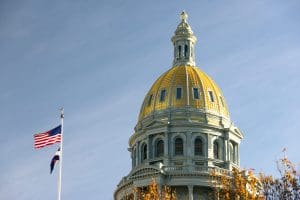The economic crisis caused by the coronavirus pandemic poses a triple challenge for tax policy in the United States. Lawmakers are tasked with crafting a policy response that will accelerate the economic recovery, reduce the mounting deficit, and protect the most vulnerable.
To assist lawmakers in navigating the challenge, and to help the American public understand the tax changes being proposed, the Tax Foundation’s Center for Federal Tax Policy modeled how 70 potential changes to the tax code would affect the U.S. economy, distribution of the tax burden, and federal revenue.
In tax policy there is an ever-present trade-off among how much revenue a tax will raise, who bears the burden of a tax, and what impact a tax will have on economic growth. Armed with the information in our new book, Options for Reforming America’s Tax Code 2.0, policymakers can debate the relative merits and trade-offs of each option to improve the tax code in a post-pandemic world.

Seattle Officials Return with New Proposal for Taxing Employment
Seattle’s city council are again gearing up for an effort to increase taxes on the city’s largest employers, intended to generate revenue for cash assistance to low-income households impacted by the COVID-19 crisis, among other reasons.
4 min read
D.C. Council to Consider Tax Hike Despite Balanced Budget
Despite a balanced budget and and revenue shortfalls arising from the coronavirus crisis, the D.C. Council will consider proposals to raise income taxes to fund newly proposed spending projects.
5 min read
Inefficiencies Created by the Tax System’s Dependence on Economic Depreciation
One idea that would help the nation’s economic recovery during the coronavirus crisis would be moving to full expensing of capital investment. The depreciation debate might seem confusing, so the question at hand is: how, when, and by what amount can businesses recognize (or recover) the cost of a capital investment, like a piece of equipment or a new warehouse, on their income tax return?
6 min read
Colorado Tobacco Tax Bill Includes Positive Change
While it is understandable that lawmakers and organizers are worried about Colorado’s financial situation, they should remember that narrow taxes are volatile and disrupt markets. Excise taxes can play a role in state revenues even as policymakers appreciate that excise taxes are not viable long-term revenue tools for general spending priorities.
4 min read
New Jersey Considers Bonds Paid for by Statewide Property Tax
As New Jersey lawmakers grapple with reduced revenues due to the coronavirus pandemic, they have turned to an unusual solution: the issuance of bonds that would be repaid, if necessary, through temporarily higher sales and property taxes.
2 min read
Sports Betting Will Not Solve State Budget Crises
The pandemic has left states in dire straits financially and lawmakers are getting creative in their pursuit of new revenue sources. However, it’s unlikely that revenue from sports betting will have any meaningful impact on budget shortfalls
3 min read


Watch: Taxing the Digital Economy
What changed in the global economy that disrupted traditional means of taxation? Is it worth finding a way to include tax digital goods and services in the tax base? Why are digital services taxes so problematic? Are there better options—ways to adapt our current system without introducing complex and economically harmful policies?
2 min read
The U.S. Trade Representative Expands Its Digital Services Tax Investigations
The U.S. Trade Representative (USTR) expanded its digital service tax investigations, announcing Section 301 investigations into digital tax policies in nine countries and the European Union. The announcement follows an investigation of the French digital services tax that was completed in 2019, after which the USTR threatened significant #tariffs in retaliation against France.
5 min read